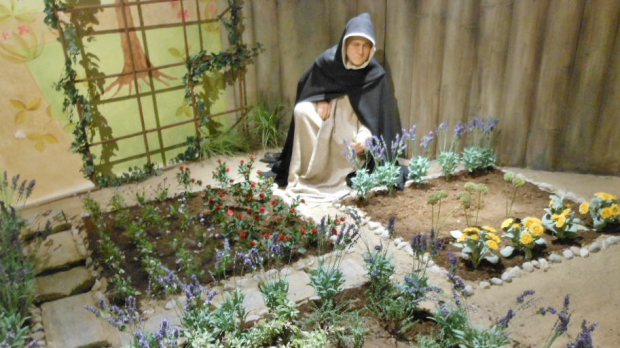Imagine there was a way to step back in time and visit 11th-century England. What fun we could have exploring the undeveloped countryside, learning the Middle English lingo, and hearing the Latin Mass celebrated at every church. That is, of course, until we would find ourselves with a toothache, or perhaps a more serious malady, which would have us reaching for a bottle of prescription pharmaceuticals.
The Middle Ages may not have had access to science-based medicine, which yielded penicillin, but people were still able to find remedies for a wide variety of medical issues. These remedies utilized combinations of simple herbs, many of which make up the backbone of England’s culinary recipes today.
In a recent post on his website, The Medieval Monk, Dr. Christopher Monk examines the medical uses of several herbs based on the accounts in the manuscripts he works to translate and transcribe for Rochester Cathedral. Not only is the article educational and filled with numerous fun facts, but Christopher writes in the guise of a slightly mad monk, which is as charming as it is relevant, as the physicians of the 11th-century were members of the scholarly religious orders.
An aid for the memory
Now, we’ve gone through the time-portal and we’ve found a way to become modest farmers in medieval England. Unfortunately, as we work we’re having trouble remembering things. At first we think the many demanding aspects of farm life are just slipping our minds, but then we notice the cow is lowing because we have forgotten to milk her for days and we know we have a problem.
We head to the local abbey and ask a physician monk for his advice. The older man pulls out a massive tome entitled The Herbarium, from which he reads:
“For the ailment which one calls ‘litargium’ that is called in our language ‘forgetfulness,’ take this same plant ‘rutam’ soaked in vinegar, then sprinkle the face therewith.”
The monk takes out a portion of the herb rue, crushes it, mixes it with vinegar, and begins to sprinkle it on our faces. We’re not sure if this is going to work, but these monks are the most learned men of our time, so we’ll give it a shot. We head back to our farm to finally milk the cow, although we’re not sure if the milk is still good, because all we can smell is vinegar.
A protection from evil
OK, so we’ve been helped with our forgetfulness, but that’s an easy one. What happens when our homestead is afflicted in the night by “the elvish race,” or perhaps we suspect our neighbor of being someone “with whom the devil has intercourse”? How can we possibly sleep at night without protection from such evils?
Well, 11th-century monks had an herbal remedy for this too. By utilizing the herb fennel, along with other herbs such as “garlic to wormwood, some butter, sheep’s grease, and ‘a lot of holy salt,'” we can create a salve that will repel the forces of evil … and elves. Of course, this remedy would also require an altar over which nine Masses must be sung.
The old medieval manuscripts are full of delightful remedies like these that will amuse you and leave you wondering if they would really work. Visit The Medieval Monk’s website for a tremendous amount of information on these medieval remedies, which are bound to bring a smile to your face and make you think.

